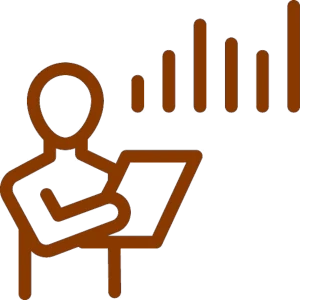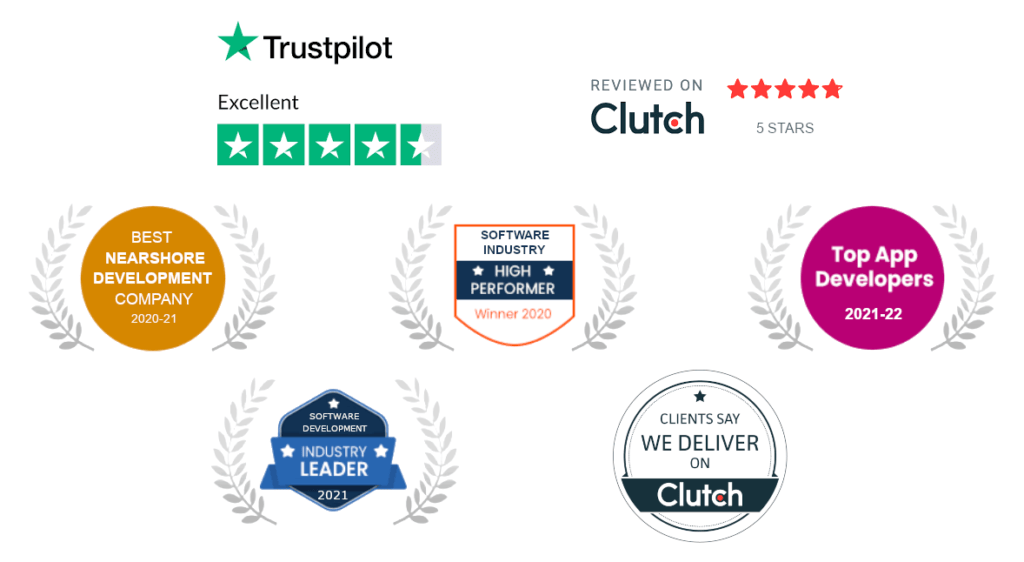We Help You Hire a QA Engineer From South America

Nearshore companies often make it difficult and time-consuming to hire a QA Engineer. However, this is not the case at QATPro where we make hiring a QA Engineer an easy, smooth and fast process. The best QA Engineer for your role should be smart, responsible, hardworking, and proficient in software testing.
We use an artificial intelligence match algorithm to help you find the best Engineer for your project. Our team finds the best match for your business based on a combination of data analysis and personal interviews.
Our goal is to help you hire a QA Engineer who will contribute quality tests from the start. We have refined our hiring process over several years, which is trusted by several fast-growing startups. QATPro can help you find your dream QA Engineer
Work to USA Hours
Since our QA Engineers are in Brazil, they are happy to work US hours to be able to communicate with your already existing team.
South American Prices
South American QA Engineers who are eager to work with US companies have joined our team.
No Surprise Extra Costs
Our company handles personnel benefits, local employment taxes, and other employment-related expenses.
Vetted Professional QA Engineers
You can be assured you are hiring a skilled professional who has gone through our rigorous testing process when you hire a QA Engineer with us.
Testimonials



What is Quality Assurance (QA)

Quality Assurance (QA) is a systematic approach that ensures the delivery of high-quality software products. It involves processes, methodologies, and activities aimed at preventing defects, identifying issues, and enhancing overall software quality. QA plays a crucial role in meeting customer expectations, reducing costs, and maintaining the reputation of software organizations.
Purpose of Quality Assurance (QA)
Ensuring Customer Satisfaction
QA aims to deliver software that meets or exceeds customer expectations, providing a positive user experience.
Improving Software Quality
QA activities focus on identifying and resolving defects and enhancing software functionality, reliability, and performance.
Key Components of Quality Assurance (QA) in Software Development
Test Planning and Execution
This involves developing comprehensive test strategies, designing test cases, executing tests, and identifying and tracking defects.
Process Improvement and Quality Control
QA encompasses analyzing and optimizing software development processes, documenting standards and best practices, implementing quality control measures, and driving continuous improvement.
QA in Summary
Quality Assurance (QA) is an integral part of software development that ensures the delivery of high-quality software products. Its purpose is to achieve customer satisfaction by providing reliable software that meets their expectations while improving overall software quality through effective test planning and execution. QA also emphasizes process improvement and quality control measures to enhance software development practices and drive continuous improvement. By implementing robust QA practices, software organizations can deliver superior products, reduce costs, and maintain a strong market reputation.
- Improve Software Reliability
- Find Bugs
- Increased Customer Loyalty
- Avoid embarrassing problems
- Reduced Customer Support Costs
- Greater Service Uptime
- More Secure Systems
- Continuous Improvement

Claúdio Costa
QA Engineer
8+ Years of QA 6+Test Automation. Enjoys creating tests for both the back and front end of systems

André Dias
QA Engineer
12+ Years of QA 8+ Years of web development experience Lots of experience of QA in the financial industry and banking

Nilton do Nascimento
QA Engineer
10+ Years of QA 8+ Years of QA Unit Test Writing. Previously worked for a number of companies in the e-commerce space.
What does a QA Engineer do?
A Quality Assurance (QA) Engineer plays a crucial role in software development by ensuring the delivery of high-quality software products. They are responsible for implementing QA processes, methodologies, and activities to prevent defects, identify issues, and improve overall software quality. QA Engineers work closely with development teams to verify adherence to quality standards and customer requirements.
Test Planning and Execution
QA Engineers develop comprehensive test plans, define test strategies, and design test cases to ensure thorough test coverage. They execute tests, analyze test results, and identify and report defects. They also collaborate with cross-functional teams to resolve issues and ensure software quality.
Process Improvement and Automation
QA Engineers focus on improving software development processes by analyzing and optimizing workflows, documenting best practices, and implementing quality control measures. They also automate testing processes using specialized tools and frameworks, enhancing efficiency and accuracy.

Continuous Improvement and Collaboration
QA Engineers actively contribute to continuous improvement initiatives by providing feedback, suggesting process enhancements, and driving quality-focused discussions. They collaborate with developers, product managers, and other stakeholders to ensure a shared understanding of quality objectives.
A QA’s Responsibilities
In the realm of software development, QA Engineers are responsible for implementing and executing QA processes, optimizing software development workflows, and ensuring continuous improvement. Their work ensures the delivery of high-quality software products that meet customer requirements and adhere to quality standards. By focusing on test planning and execution, process improvement, and fostering collaboration, QA Engineers play a vital role in achieving software excellence.

A Reliable Software Testing Partner For You
In order to test apps and websites, you need a partner with experience and reliability. We strive to provide a professional and premium service to all of our customers. Our testing team can help you get off to a great start!
How to Hire a QA Engineer?
Here are three steps you can follow in order to hire a QA Engineer with us:
Click the button below and fill in your requirements and click send. Please provide a description of whatever you need and your project.
Receiving and interviewing resumes from QA Engineers. Start preparing a shortlist of professionals to interview once the proposals start coming in.
The requirements description is where you will determine your scope of work and the specific type of QA Engineer you need.
- Project Scope: From websites, APIs to apps and analytics, list all the deliverables you’ll require.
- Expected Project length: Your job post should indicate what timescale you expect the work to be completed in or if it is ongoing.
- Industry Background: If you prefer someone with certain industry experience, mention this here.
- Preferred Billing: Tell us if you prefer hourly rates or monthly bills.
How much does it cost to Hire a QA Engineer?
It is common for many factors to have an impact on the cost, such as expertise, experience, location, and market conditions.
QA Engineers who boast experience will also deliver higher-quality results, work faster, and have more specialized areas of expertise in addition to commanding higher fees.
A beginner might price their development services higher as they gain experience.
The hourly rates for our South American QA Engineers are:
Junior
Prices From- Works to U.S time zones
- No Recruitment Fees
- Vetted Skills & Experience
- Fulltime Working for you
- No Unreliable Freelancers
Intermediate
Prices From- Works to U.S time zones
- No Recruitment Fees
- Vetted Skills & Experience
- Fulltime Working for you
- No Unreliable Freelancers
Senior
Prices From- Works to U.S time zones
- No Recruitment Fees
- Vetted Skills & Experience
- Fulltime Working for you
- No Unreliable Freelancers
With us, you can hire a QA Engineer from South America!
Engineer prices may vary depending on exact skill and experience requirements and availability.
You’ll have to decide which one works best for your project based on its specifics.
Do QA Engineers write tests?
Quality Assurance (QA) Engineers are actively involved in writing tests as part of their responsibilities in software development. They play a crucial role in ensuring the quality and reliability of software products through comprehensive test planning, design, and execution. QA Engineers collaborate closely with developers and stakeholders to define test cases and verify the functionality, performance, and adherence to requirements of the software.
Example: Let’s consider a scenario where a QA Engineer is working on testing an e-commerce website. They would start by understanding the requirements and specifications of the website’s features, such as user registration, product search, and checkout process. Based on this understanding, the QA Engineer would then write test cases to cover various scenarios.
For example, they might write a test case to verify the user registration process. This test case would include steps to enter valid and invalid user information, verify error messages for invalid input, and validate that registered users can successfully log in to the website. The QA Engineer would execute this test case and report any defects or issues they encounter, ensuring that the registration process functions correctly and meets the desired quality standards.
What Interview Questions should you ask a QA Engineer?
Can you describe your approach to test planning and test case design?
This question assesses the candidate’s understanding of test planning and their ability to develop effective test cases. Look for candidates who mention gathering requirements, identifying test objectives, designing test cases for maximum coverage, and considering boundary cases and edge conditions.
How do you handle and report software defects during the testing process?
This question evaluates the candidate’s defect management skills. Look for candidates who can explain their process for identifying and documenting defects, assigning priorities and severity levels, and effectively communicating them to the development team. Experience with defect tracking tools and collaboration with cross-functional teams is a plus.

How do you approach testing for different types of testing, such as functional, performance, and security testing?
This question assesses the candidate’s knowledge of different types of testing and their ability to adapt testing strategies accordingly. Look for candidates who demonstrate an understanding of the specific challenges and techniques associated with each type of testing and can discuss their approach to ensure comprehensive coverage.

Do You Enjoy Working Alone or as part of a team?
There are no right or wrong answers to this question since QA engineers can possess any combination of skills. Hire a QA engineer who is hardworking and capable of working independently if that is important to you. As an alternative, you might want someone who is flexible and doesn’t exhibit stubborn behavior.
Can you share an example of a difficult testing scenario you encountered and how you resolved it?
This question evaluates the candidate’s problem-solving abilities and ability to handle challenging testing situations. Look for candidates who can describe a specific scenario, explain the steps they took to address the challenge and highlight the outcome and lessons learned. Look for effective communication, collaboration, and critical thinking skills.
A Brief History of Quality Assurance (QA)
The history of Quality Assurance (QA) Engineering in computer software is characterized by the evolution of practices and methodologies to ensure high-quality software products. Over time, QA Engineering has adapted to the changing landscape of software development and the increasing focus on delivering reliable and user-friendly software solutions.
Early Stages of QA Engineering:
Informal Testing: In the early days of software development, testing was often ad hoc and focused on identifying obvious bugs or errors in the software.
Emergence of Formal QA Processes:
Software Engineering Discipline: In the 1970s and 1980s, as software engineering emerged, QA gained prominence with techniques such as unit testing and code reviews.
Formal QA Practices: Organizations started implementing formal QA processes to ensure software met requirements and performed reliably.
Process Improvement and Standards:
- TQM and CMMI: In the 1990s, methodologies like Total Quality Management (TQM) and Capability Maturity Model Integration (CMMI) emphasized standardized processes for development and QA.
- Shift towards Prevention: The focus shifted from defect identification to preventing defects through improved processes.
Agile and Shift-Left Testing:
- Agile Methodologies: The 2000s saw the rise of Agile methodologies, integrating QA activities throughout the software development lifecycle.
- Collaboration and Continuous Improvement: QA Engineers started working closely with developers, participating in daily stand-ups, and emphasizing continuous quality improvement.
Test Automation and DevOps Integration:
- Test Automation: Recent years have seen increased adoption of test automation frameworks and tools, enabling more efficient and reliable testing.
- DevOps and Continuous Integration: Integration of QA processes into DevOps pipelines facilitated faster feedback loops and rapid software releases.
QA’s Commitment To Improving Software
The history of QA Engineering in computer software reflects the industry’s commitment to improving software quality. It has evolved from informal testing to formal QA processes, process improvement methodologies, Agile practices, test automation, and DevOps integration. QA Engineers play a vital role in ensuring high-quality software that meets customer expectations and contributes to the success of organizations in the competitive software market.
Why Should You Hire A QA Engineer?
Hiring a Quality Assurance (QA) Engineer is essential for organizations looking to deliver high-quality software products. QA Engineers bring a specialized skill set and expertise in ensuring software quality, reducing defects, and enhancing the overall user experience.
Ensure Software Quality:
QA Engineers have a deep understanding of testing methodologies, enabling them to design comprehensive test plans and execute tests to uncover defects and ensure software meets quality standards.
Prevent Costly Errors:
By identifying and resolving issues early in the software development process, QA Engineers help prevent costly errors that could arise later in the product lifecycle, saving time and resources.
Enhance User Satisfaction:
QA Engineers focus on user-centric testing, ensuring that software meets customer expectations and delivers a seamless and satisfactory user experience.
Mitigate Risks:
QA Engineers play a crucial role in mitigating risks by identifying potential vulnerabilities, security flaws, and compliance issues, thereby protecting the organization and its users.
Hiring a QA Engineer is essential for organizations to deliver high-quality software, minimize errors, enhance user satisfaction, mitigate risks, and improve development processes. QA Engineers bring valuable skills and expertise that contribute to the overall success and reputation of the organization by ensuring software products meet the highest standards of quality and reliability.

- Ensure Software Quality
- Prevent Costly Errors
- Enhanced User Satisfaction
- Improve Development Processes
- Reduce Downtime
- Reduce Risk
Why should you hire a QA Engineer from us?
We offer competitive prices and high-quality Engineers as a leading Nearshore Technology Solutions company. Providing high-performance, scalable solutions to our clients is our goal.
With our programming prowess and project management experience, we provide development project acceleration or rescue. In the process of developing your project and beyond, we strive to add lasting value.
Over 100 startups and tech companies trust us to match Engineers with great teams around the world.
The QA Engineers we assign to your organization become devoted team members.
As part of our vetting process, we verify each QA Engineer’s communication skills, remote working readiness, and technical skills (both for QA and web development, but also for knowledge of software development and computer science).
Cost Reduction
Companies usually outsource in order to reduce costs. Hiring software engineers from outside the United States costs less. You will also significantly reduce overall employment costs. You won’t have to pay US or European employment taxes, benefits, redundancy liabilities, or office space.
Scale Fast
Expanding and downsizing quickly can be a great competitive advantage for any industry. Outsourcing Brazilian Engineers with us will allow your business to scale up or down as you need, and with relative ease.
Professional Experience
With software testing outsourcing, you’re entrusting your project to a company with extensive experience in helping businesses achieve their goals. As a result, you can feel more secure knowing that your application will be delivered on schedule and within budget.
How To Test A QA Engineer Before Hiring Them?

To evaluate a QA engineer before hiring them, consider the following approaches. Conduct a thorough review of their resume, paying attention to their experience, certifications, and educational background.
In the technical interview, assess their knowledge of QA methodologies, test planning, and defect management. Assign practical tasks or provide a sample project to evaluate their ability to design comprehensive test cases and execute tests effectively. Consider conducting a code review or requesting them to identify defects in a given code snippet.
Additionally, assess their problem-solving skills, communication abilities, and collaboration approach through hypothetical scenarios or a behavioral interview. Lastly, consider requesting references from previous employers or colleagues to gain insights into their performance, work ethic, and teamwork skills.
How do you best manage QA Engineers?
Effective management is essential when working with QA Engineers and development teams with diverse skill sets. Maintaining technical talent, whether full-time or working in hybrid teams, also requires a strong management structure.
Match business goals to development deliverables
The product owner, the development manager, and the architect can define key results to align on measurable success criteria. In collaboration with the leaders, the team defines the objective and discusses, debates, and selects the key results.
It is important to regularly define OKRs. A frequent definition and measurement of OKRs can incur costs, while an infrequent definition and measurement can leave teams confused about what they need to accomplish. As examples, here are two:
Increasing app availability, reducing error rates, or reducing page response time are examples of meaningful improvements in application reliability.
Deployment reliability may be improved by automating tests and reducing build time.

Maintain a reliable process and choose an engineering methodology
There are many QA Engineers who praise agile methodologies. Establish a schedule for releases or sprints.
In typical one-week sprints, big user stories are almost impossible to complete, but two-week sprints allow for vacations and unexpected problems. Keeping track of everyone’s progress (and asking for help as necessary) requires daily stand-up meetings.
Good team communication and information sharing make for better products
You must connect your engineering team to the rest of the organization as well as your customers in order to be an effective engineering manager. Your QA Engineer should understand your customers, target audience, and the rest of the organization’s needs and constraints.
You can deliver useful and profitable software by understanding the needs of your audience. It is important for QA Engineers to communicate directly with external teams and partners when necessary, as well as relay relevant information to them.
If you require we can help you manage effectively
With our help, you will be able to manage your QA team and implement Agile methodologies. Rather than procedures and devices, these principles emphasize people and exchanges, working software over comprehensive documentation, customer relationships over contract negotiations, and adapting to change over planning.
Adopting an Agile methodology is only one aspect of implementing Agile. After analyzing your business and understanding your processes, we help you choose the right Agile methodology. A working methodology that is right for you will result in increased productivity, shorter time-to-market, and fewer defects.

How long does the average QA Engineer job last?
A QA Engineer in the US is most likely to stay in a company for 1.8 to 3.2 years after hiring. Larger companies tend to hire workers for longer periods of time. Brazil’s average stay is between 2.4 and 4.1 years, with Sao Paulo spending the shortest time. Before, people often spent their entire careers working for the same company.
A Senior QA Engineer may move between jobs fairly quickly, seeking new opportunities and more money, as such longevity is no longer commonplace. In this market, the most in-demand test pros can migrate between jobs (or freelancing) fairly easily due to a low unemployment rate and a desperate need for professionals with mobile, cloud, and other critical skills. It is crucial for us to communicate with our employees and to offer perks that will attract and retain talented individuals.

Frequently Asked Questions (FAQs)
Our services are trusted by hundreds of startups and tech companies worldwide, and we have matched hundreds of skilled Engineers to great development teams in the US, UK and Canada. Every QA Engineer in our network goes through a vetting process to verify their communication abilities, remote work readiness, and technical skills, both for depth in QA and breadth across the greater programming domain.
The job description of a QA Engineer should include the following:
testing and managing software
New program testing and evaluation
Enhancing existing programs by identifying areas for improvement
Coding in an efficient manner
Analyzing operational feasibility
Establishing procedures for quality assurance
Implementing software testing tools, processes, and metrics
Upgrades and maintenance of existing systems
Assisting other Engineers, UX designers, and business analysts with their tasks
It’s not enough to just ship features; your software needs to help your business succeed. In order to better understand what you’re building, for whom, and why, we’ll begin our collaboration with a discovery process.
Our headquarters are in Sao Paulo, Brazil. We have clients from all over the world. We have successfully collaborated with companies in North America, Asia, the Middle East, and Europe. A good understanding of each client and excellent English communication skills help the process run smoothly.
We can work with you to scale the team down as needed and make sure you have the correct skills required for each project phase.
All Types! You can hire a QA Engineer on a full-time, part-time, or contract-to-hire basis. At QATPro you can find a QA Engineer in a time zone that suits your needs thanks to our global network of skilled software engineers. Engineers who work remotely for us are all mid- and senior-level professionals, ready to code right away.

